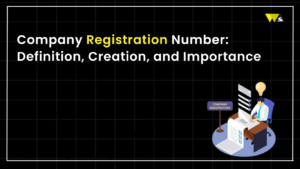Whenever any individual or a person from the same social class agrees with one another, a cooperative society is likely to be formed. Unlike any other Non-Governmental Organizations (NGOs), these societies are mostly focused on the benefit of their sole members. The co-operative society’s members collaborate to end capitalism exploitation and to get better financial standing. These societies invest in outside resources, so on a regular interval, audits are drawn to their accounting system. Account auditing is required as per the bylaws of the cooperative society, which control the operation of the organization. The authorized person, who is known to be the auditor, who is often elected by the registrar of the company, is in charge of conducting such an examination. In this blog we will described about Appointment of Auditor of Co-operative Society.
Co-operative Society Audit: Who will Carry Out?
- The audit can only be performed by the Departmental Auditors or the certified auditors that the Registrar mostly chooses.
- The Registrar chooses any society or class to select an auditor from the list of certified auditors that he maintains and publishes in the Official Gazette.
Who is the Certified Co-operative Society Auditor?
A certified auditor is appointed as an auditor in a co-operative society and is:
- a chartered accountant as is defined under the Chartered Accountants Act of 1949.
- the person who holds a government diploma in co-operative accounts or accountancy.
- the person whose name has been added by the Registrar to the list of certified auditors that he has maintained and published in the Official Gazette and who has served as an auditor for the Co-operative Department of the State Government not less than once every three years.
Co-operative Society Auditor: Process of Appointment
- An auditor of the co-operative society is mostly appointed by the registrar who possess the power to choose them, or the Chartered Accountant has also the power to appoint an auditor of the co-operative society.
- A general body mostly has the power to appoint the statutory auditor, while the managing committee has the power to appoint an internal auditor. It is important to remember that this particular kind of appointment requires the prior approval of the members.
- The auditor’s tenure is non-extendible and it ends on the day of appointment.
- At the first Auditor General Meeting, the newly established society must choose its own co-operative society auditor. Their appointment is valid for a maximum of three years in a row.
- The registrar may be notified for this reason in lieu of a general meeting being held to decide whether to re-appoint the co-operative society auditor or not.
- To verify the process, the co-operative society auditor has to submit a written declaration.
Under the direction of the core members, the Statutory Auditor is often appointed during or at the time of the Annual General Meeting. The registrar itself may handle the same role in an emergency.
Co-operative Society Auditor: Roles and Responsibilities
The checklist of the items that the co-operative society auditor usually looks into is shown in the following section:
- a quantum of shares that every person in the community owns. Usually, the membership registrations are checked to do this.
- current costs, resources, and money on hand for the society. co-operative society auditors often make the use of conventional accounting concepts as their foundation for verifying these aspects.
- P&L account and balance sheet
- Cash book and bank.
In addition to auditing, a chartered accountant in his auditing capacity can assist with account writing, accounting system deployment, internal audit, tax preparation, and managerial accounting services.
Memorandum of Audit
The auditor is required to provide the memorandum of audit in the format designated by the Registrar to both the society and the Registrar. This memorandum has to have the following information:
- To the best of his knowledge, the auditor has collected all the data and the information;
- The balance sheet and profit and loss account which he reviewed are in accordance with the books of accounts and returns of the society; the books of accounts are made in accordance with the Act, Rules, and the bylaws of the organization.
- Information in connection to any unlawful transactions that violate the Act’s requirements, the society’s rules, or its bylaws;
- Specifics of every amount that the society need to have considered but hasn’t
- Information on any such irregularity or impropriety in the realisation or spending of funds owed to the society;
- Any funds or assets which are owned by the society that the auditor believes to be bad or fraudulent debts; and any other items as decided by the Registrar.
- The auditor’s summary of the memorandum of audit is read during the general meeting in the society.
Things to Consider
- Additionally, the registrar has the authority to select the auditor for societies supported by state government by financial guarantees and assistance.
- The Indian Institute of Certified Public Accountants is not involved in any activity that would allow them to provide audit certificates to societies.
- In cooperative societies, all qualified chartered accountants, or CAs, are permitted to carry out audit-related tasks.
- The auditor’s term will expire on the date of appointment and cannot be extended.
- At the first AGM, the newly established society must choose its auditor. The appointment is valid for a maximum of three years in a row.
- The registrar has to be notified with the reason in the general meeting which is being held to decide whether they are going to be reappointed as the auditor or not.
- A statutory auditor is often appointed by the general body, while an internal auditor is mostly appointed by the managing committee. It is important to remember that this kind of appointment requires the members’ previous approval.
- The board members have the right influence over the auditor appointment process.
Following the audit, the auditor will send a letter to the society whose account they checked, in accordance with the standards that the registrar has specified. The audit class of the society is also listed in the list of the society that is mentioned under Section 12 (3).
Conclusion
We believe that this informational display has improved your understanding and solidified your idea of the co-operative society auditor appointment process.
Read our blog: Online Business Without Investment: Best 6 Options










